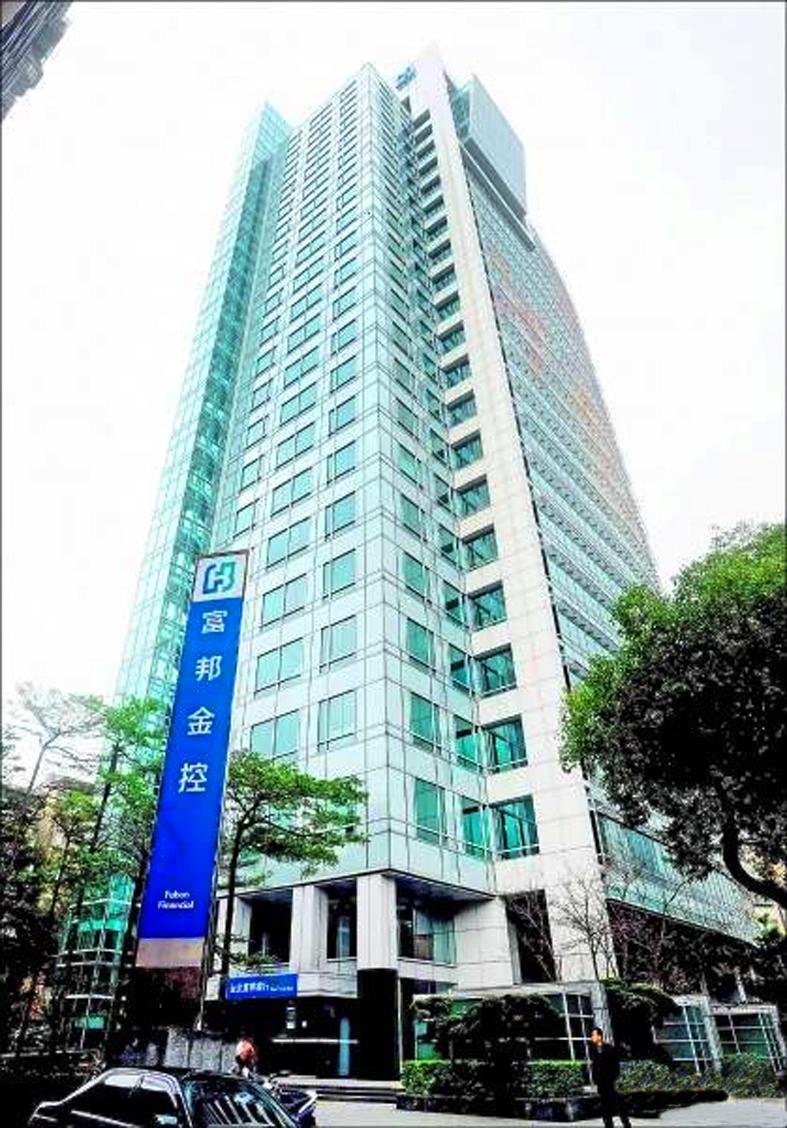Fubon Financial Holding Co (富邦金控) plans to raise NT$50 billion (US$1.79 billion) in fresh capital in August or September by issuing new common shares and preferred shares so it can buy the remaining 46.16 percent stake in Jih Sun Financial Holding Co (日盛金控), Fubon Financial president Jerry Harn (韓蔚廷) said.
According to Fubon Financial’s plan, it would raise NT$30 billion by issuing 500 million to 750 million new common shares and NT$20 billion by issuing 333 million preferred shares.
“The share issue would dilute Fubon Financial’s share value by about 5 percent, but that should not compromise our goal to rank first in terms of earnings per share among all local financial conglomerates,” Harn told an investors’ conference on Thursday.

Photo: Lin Cheng-kun, Taipei Times
Fubon Financial’s earnings per share were NT$6.25 for the first four months, up 127 percent year-on-year and the highest among its peers, followed by Cathay Financial Holding Co’s (國泰金控) earnings per share of NT$5.39.
After Fubon Financial acquired majority control of Jih Sun Financial on March 23, the firm recognized its assets of NT$365 billion, which increased Fubon Financial’s assets by 13 percent year-on-year to NT$969 billion.
Fubon Life Insurance Co (富邦人壽) in the first quarter reported a 5.2 percent year-on-year increase in first-year premiums to NT$39 billion, with the ratio of sales of investment-linked policies to total sales growing from 20 percent a year earlier to 48 percent, it told the investors’ conference.
Taipei Fubon Commercial Bank’s (台北富邦銀行) mortgage lending increased 9.3 percent year-on-year to NT$662 billion as of the end of March, it said.
The central bank’s tightened credit controls on mortgages have had a limited effect on the bank, as Taipei Fubon does not focus on luxury properties or those in business districts, Harn said.
Taipei Fubon’s net interest margin slid from 1.1 percent a year earlier to 1.06 percent last quarter, with the spread declining from 1.44 percent to 1.3 percent.

CHIP WAR: Tariffs on Taiwanese chips would prompt companies to move their factories, but not necessarily to the US, unleashing a ‘global cross-sector tariff war’ US President Donald Trump would “shoot himself in the foot” if he follows through on his recent pledge to impose higher tariffs on Taiwanese and other foreign semiconductors entering the US, analysts said. Trump’s plans to raise tariffs on chips manufactured in Taiwan to as high as 100 percent would backfire, macroeconomist Henry Wu (吳嘉隆) said. He would “shoot himself in the foot,” Wu said on Saturday, as such economic measures would lead Taiwanese chip suppliers to pass on additional costs to their US clients and consumers, and ultimately cause another wave of inflation. Trump has claimed that Taiwan took up to

A start-up in Mexico is trying to help get a handle on one coastal city’s plastic waste problem by converting it into gasoline, diesel and other fuels. With less than 10 percent of the world’s plastics being recycled, Petgas’ idea is that rather than letting discarded plastic become waste, it can become productive again as fuel. Petgas developed a machine in the port city of Boca del Rio that uses pyrolysis, a thermodynamic process that heats plastics in the absence of oxygen, breaking it down to produce gasoline, diesel, kerosene, paraffin and coke. Petgas chief technology officer Carlos Parraguirre Diaz said that in

SUPPORT: The government said it would help firms deal with supply disruptions, after Trump signed orders imposing tariffs of 25 percent on imports from Canada and Mexico The government pledged to help companies with operations in Mexico, such as iPhone assembler Hon Hai Precision Industry Co (鴻海精密), also known as Foxconn Technology Group (富士康科技集團), shift production lines and investment if needed to deal with higher US tariffs. The Ministry of Economic Affairs yesterday announced measures to help local firms cope with the US tariff increases on Canada, Mexico, China and other potential areas. The ministry said that it would establish an investment and trade service center in the US to help Taiwanese firms assess the investment environment in different US states, plan supply chain relocation strategies and

Japan intends to closely monitor the impact on its currency of US President Donald Trump’s new tariffs and is worried about the international fallout from the trade imposts, Japanese Minister of Finance Katsunobu Kato said. “We need to carefully see how the exchange rate and other factors will be affected and what form US monetary policy will take in the future,” Kato said yesterday in an interview with Fuji Television. Japan is very concerned about how the tariffs might impact the global economy, he added. Kato spoke as nations and firms brace for potential repercussions after Trump unleashed the first salvo of